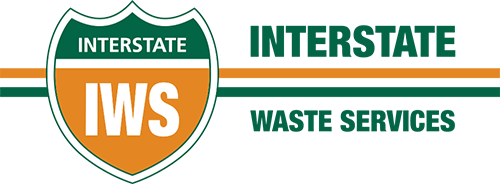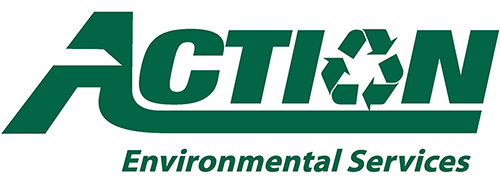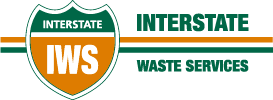We get it, recycling can be confusing, and you have questions!
- What can I recycle?
- Do I have to rinse my food containers?
- Why can’t I put plastic shopping bags in with my other recyclables?
- Does recycling really have an impact on the environment?
These are just some of the questions we hear from our residential and commercial customers. We’ll answer these questions and talk about some recycling facts, myths and more inside information.
If you have any recycling questions, email us (link to contact form)! We love to talk about recycling and are happy to help spread the word!
First, our frequently asked recycling questions:
Frequently Asked Questions
What can I recycle?
If you are an IWS customer in New York or New Jersey, check our recycling guides and signs (click here)! Acceptable recyclable materials can vary by provider or geography. Always be sure to check with your waste and recycling provider to make sure you are only placing acceptable materials in your recycling bin. For our customers, generally accepted recyclable items are paper, cardboard, paperboard, plastics, and aluminum.
Do I have to clean my recyclable food containers?
Recyclable food containers (plastic takeout containers, jars, cans, etc.) should be free of food waste. Food and beverage containers do not have to be soap clean and dry but should not contain food waste. When in doubt, give them a good rinse.
Why can’t I put plastic shopping bags or plastic wrap/film in with my other recyclables?
Plastic shopping bags are recyclable however cannot be processed in a traditional single stream recycling facility. Recycling facility machinery is made up of a lot of moving and spinning parts. Plastic sheeting, film and shopping bags easily tangle and can bind even the strongest of machinery, which puts a stop to all recycling processing. Check with your recycling provider or local grocery store to see if they accept recyclable plastic film and shopping bags.
Does recycling really have an impact on the environment?
YES! IWS processed nearly 150,000 tons (300 million pounds) of cardboard and paper last year. That’s over 2.5 million trees and nearly 500,000 cubic yards of landfill space saved. By recycling paper, plastics, metals, and glass we save millions of trees, cubic yards of landfill space, gallons of oil, and kilowatts of energy. So, IWS customers alone have an enormous recycling impact each year!
What recyclables cannot be place in my curbside tote?
These items are generally not accepted at single stream recycling facilities and should not be placed in your recycling receptacles. Some of these materials are recyclable but may require specialty processing and cannot be mixed in with other recyclable materials.
Food waste*, hazardous material containers, ceramics, dishes, window glass, mirrored glass, batteries, Styrofoam, electronics*, appliances, wiring, carbon paper, used tissues/paper towels, needles/syringes, pyrex dishware, light bulbs*, plastic bags/film*, coated paperboard, masks, cleaning wipes, heavily soiled or wet cardboard
* Indicates that items may be recyclable, but require specialty recycling facilities and cannot be processed with your normal recyclables
Recycling Facts
Every three months, Americans throw away enough aluminum to build our nation’s entire commercial air fleet. Many metals like aluminum can be recycled indefinitely without loss of material quality.
(Source: Recycling Across America)
Every day, Americans throw away 60 million plastic water bottles instead of recycling them. Only 1 in 6 water bottles is recycled. The best solution is to stop the use of single-use plastic bottles, but second best is to recycle them!
(Source: Container Recycling Institute)
On average, a plastic bag is only used for 12 minutes in its lifetime but can take 1,000 years to decompose. Reusable bags are a more sustainable solution!
(Source: EarthDay.org)
Myths
I can throw plastic bottles or other recyclable items in my trash; they will get sorted out before they go to the landfill.
Only the items placed in your recycling receptacle will go to recycling facilities. Recyclable items placed in your trash, will not be processed for recycling. Whatever you throw in your trash, even if it is recyclable, is disposed of at the landfill.
It’s ok to leave food waste in my recyclable containers or water in my recyclable plastic bottle, it’s natural! It will not affect items being recycled.
Contamination is one of the biggest challenges to recycling rates. Once recyclable items are sorted, processed, and baled, moisture/contamination levels are measured. If there is too much moisture or contamination in the bale, the material can be rejected by manufacturers. To make sure your recyclables have their best chance at a new life, don’t throw heavily soiled items in your recycling, and give your food containers a rinse and empty your beverage bottles and cans.
All recycling is sorted by heavy duty machines, my recycling mistakes can’t harm anyone.
Recycling is sorted by both humans and machines. Behind every recycling line, you will find line pickers and inspectors. Hazardous materials, medical waste, or other items that could cause injury or be harmful to your health, put employees in danger. That’s why it’s so important to only recycle acceptable items. Workplace and employee safety is our priority!
Did you know…
Your recyclable materials are sorted into several material categories when processed.
Single stream recycling means you can throw all recyclable materials into a single recycling container without sorting. But in order to sell those materials to manufacturers, we have to sort them into categories.
Plastics recycling:
Plastics are sorted into 4 categories: HDPE Natural (e.g., milk jugs), HDPE Color (e.g., detergent bottles), PET (e.g., water and soda bottles) and rigid (e.g., plastic crates).
Paper & cardboard recycling:
In the industry, we refer to all paper and cardboard as fiber recycling. Fiber is separated into 3 categories at our Material Recovery Facility: Corrugated Cardboard (e.g., cardboard boxes), White Paper (e.g., office/printer paper), and Mixed Paper (e.g., newspapers & magazines).
Metal recycling:
Metal is sorted into 3 categories: tin, aluminum, and steel. Food and beverage containers can be made from any of the three metals.
(In a future blog post, we will share more about how these materials are sorted by our equipment!)
A final thought…
Manufacturers are major drivers in the recycling industry.
Once recycling companies have collected, sorted, and processed your recyclables, we depend on manufacturers to buy the recovered material to make their products. By choosing brands that use recycled materials or packaging, you are telling manufacturers that sustainability matters to consumers!



